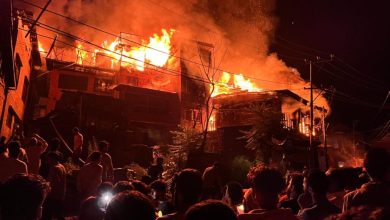Concerns raised over disproportionate representation of Hindus in JKPSC exam results
 Srinagar: In Indian illegally occupied Jammu and Kashmir, the results of the Jammu and Kashmir Public Service Commission (JKPSC) Combined Competitive Examination 2023 have sparked controversy as they reveal a significant imbalance in the representation of Hindus and Muslims among the selected candidates.
Srinagar: In Indian illegally occupied Jammu and Kashmir, the results of the Jammu and Kashmir Public Service Commission (JKPSC) Combined Competitive Examination 2023 have sparked controversy as they reveal a significant imbalance in the representation of Hindus and Muslims among the selected candidates.
According to Kashmir Media Service, of the 71 candidates chosen, over 36 are Hindus, despite the community constituting only 28% of the population in the territory, while Muslims make up about 70 %.
This disparity raises concerns about the underrepresentation of Muslims in occupied Jammu and Kashmir’s administrative examinations, despite their significant demographic presence. Notably, Hindus have predominantly secured appointments in superior services, overseeing critical departments such as land revenue.
This disparity raises questions about the lower representation of Muslims in IIOJK administrative examinations, especially given their larger demographic presence. Already, Hindus have predominately been appointed in superior services who are overseeing key deptarments like land revenue.
The JKPSC announced that only 29 of the selected candidates (approximately 40%) come from the Open Merit category, which represents over 70% of the population. In contrast, a staggering 60% of the selected candidates are from reserved categories, often linked to “backward” villages and scheduled castes. Critics argue that this situation reflects a long-standing trend of bureaucratic and political malpractice that has undermined the meritocratic principles of the selection process.
The examination results come on the heels of significant political discourse surrounding reservation policies in occupied Jammu and Kashmir. Observers are urging the National Conference setup to fulfill its manifesto promises by conducting a thorough review of reservation practices to ensure fair representation for Open Merit candidates. The disparity in the selection results has led to favoritism and discrimination against the Muslim majority in the territory, raising alarms about systemic biases in the recruitment processes.
The selection process for the JKPSC has previously faced criticism for not adequately reflecting the diverse demographics of occupied Jammu and Kashmir.








